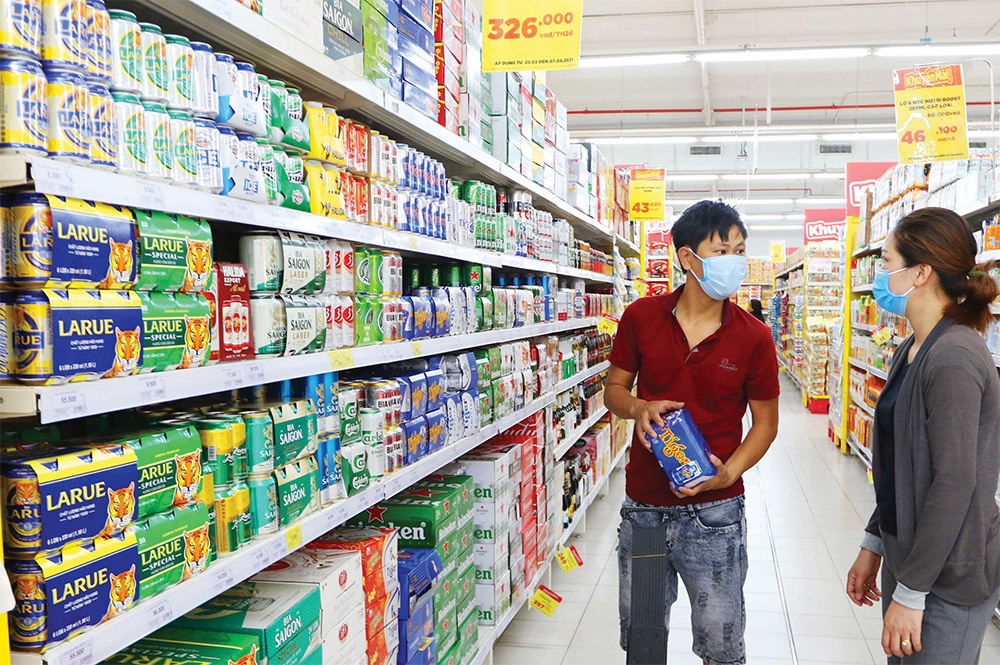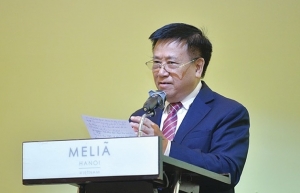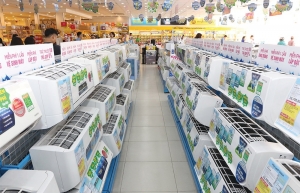Calls made to avoid “unfair” tax methods
A government report sent to the National Assembly last week stated that during the process of proposing the development of the revised Law on Special Consumption Tax, suggestions were made for further research on compound tax method for beers and spirits.
 |
| A significant change in tax regime could affect business performance and social security, photo Le Toan |
Specifically, some traders and importers of high-end alcohol from the United Kingdom and France proposed a compound tax on spirits. For beer, only HEINEKEN’s Vietnam brewery suggested similar.
However, state capital investment corporations, the Vietnam Association of Foreign-Invested Enterprises, the Vietnam Association of Financial Investors, and more than 20 alcohol production enterprises said a compound tax method should not be applied.
The Ministry of Finance explained that up to 80 per cent of the domestic beer market share is popular or local beer, with a huge price difference compared to premium beer. Therefore, if specific tax and compound tax methods were applied, it would lead to unfair taxation in which popular beer businesses would have to pay more tax, and the decrease in revenue could indirectly affect social security and jobs.
Nguyen Van Phung, former director of the Department of Tax Administration for Large Enterprises under the General Department of Taxation, said that each tax calculation method has advantages and disadvantages. Each country will depend on its situation, including the level of taxpayers’ self-awareness and market transparency.
“From a comprehensive perspective, of individuals as well as researchers, I see that the latest draft has made some progress,” he said.
He explained that in Vietnam, if the specific tax and compound tax are immediately applied, it will cause shock and damage to businesses and consumers. “This is because most of us have average incomes, and not enough finances to consume the high-price segment. Therefore, the current tax method is more reasonable,” Phung said.
Vietnam currently applies an excise tax of 35-65 per cent on spirits and 65 per cent on beer. The MoF has proposed adjusting the rates following a roadmap from 2026 to 2030. The retail price will increase by 10 per cent according to recommendations made by World Health Organization, and the draft law will be discussed by the National Assembly in October.
Vietnam is expected to reach a production output of 4.6 billion litres of beer in 2025, 350 million litres of spirits, and 9.1 billion litres of soft drinks. The industry will achieve an export turnover of $600 million.
| Do Thai Vuong, head beverage Subcommittee Vietnam Beer-Alcohol-Beverage Association Soft drinks with sugar content above 5g/100ml should not be subject special consumption tax (SCT) in Vietnam, because in reality there has not been a full and comprehensive study as well as further assessment of the impact of the tax on direct and indirect subjects in terms of the economy and society. This is the consistent opinion of the soft drink industry in Vietnam, as sent to relevant ministries and sectors in documents sent for comments on the draft law. In the current draft law, Article 2 is not sufficient enough or comprehensive because Vietnamese standards are not the basis for lawmaking. Health drinks and sports drinks are expected to be taxed, while other drinks and foods containing even higher amounts of sugar are not subject to SCT. This will likely lead to discrimination and unfairness in the development of various state legal regulations. According to statistics from the Food and Agriculture Organization of the United Nations and a report by Nielsen in Vietnam, the amount of free sugar from sugary drinks accounts for only about 1.1 per cent of the total energy intake from food and drinks. Meanwhile, according to the World Health Organization, the amount of free sugar intake into the body daily is allowed to be at 5 per cent of the total energy intake (equivalent to 25g/day). Thus, if there is sugar abuse in the daily diet of Vietnamese people, the majority of this comes from other sources of sugary foods. From the perspective of many businesses in the beverage industry in Vietnam and beyond, other countries have been applying effective measures, which are education and propaganda to raise people’s awareness regarding sugar and calorie intake. As health experts share, calories come from many sources of food and beverages, and not only from sugar. At present, businesses are researching vitamin and mineral supplements. The industry itself has been implementing product lines that are good for health. The key issue here is that we need to propagate to raise people’s awareness so that people are aware of controlling the number of calories they take in compared to the calories they burn. Assoc. Prof. Dr. Truong Thi Tuyet Mai Deputy director National Institute of Nutrition Many people wonder why we only impose SCT on sugary soft drinks and not on other products such as cakes or sweets. The reason for choosing sugary soft drinks is because they contribute up to 25 per cent of free sugar consumption in adults and 40 per cent of free sugar consumption in adolescents. According to the results of a general nutrition survey, there are areas where up to one-quarter of people consume more free sugar than recommended. Of which, the contribution of sugary drinks is massive. With other products such as tea and cakes, we are continuing to communicate so that people limit their use and limit their intake of such products. The government uses many different measures to control the consumption of foods containing a lot of sugar. In other areas, implementation must have a roadmap, gradually taxing items. Phan Minh Thuy, head of Legislation Vietnam Chamber of Commerce and Industry This policy needs to be carefully considered in the following aspects: Firstly, the goal of preventing overweight and obesity is necessary and receives support from businesses. However, how the 10 per cent SCT on sugary soft drinks will help limit or reduce the rate of obesity has not been fully assessed. According to research, foods containing sugar provide an average of 3.6 per cent of the total energy intake. Thus, a 10 per cent tax rate on sugary soft drinks can only reduce a minimal amount, about 0.1-0.2 per cent of the energy that is consumed. Secondly, this tax policy does not ensure fairness when focusing only on ready-to-drink bottled drinks. On-site drinks such as coffee, milk tea, sugarcane juice, and lemon tea will be difficult to tax because the sugar content cannot be accurately determined. In addition, if sugar is considered the cause of overweight and obesity, it is necessary to consider and evaluate the impact of other sugary products. Thirdly, this policy will negatively impact Vietnamese beverage enterprises, especially purely domestic enterprises. Foreign enterprises have experience and technology in switching to sugar-free but still sweet beverage products. Meanwhile, purely domestic enterprises face many more difficulties when the tax policy is implemented. Budget revenues after the first year will decrease compared to the first year, due to the effect of the target of taxing sugary soft drinks to raise awareness of consumers and manufacturers. For businesses, applying SCT on sugary soft drinks with sugar content over 5g/100ml will encourage businesses to change the ingredients and formulas for producing soft drinks, reducing the sugar content in the products to avoid the tax. However, implementing SCT on these items will increase the selling price, thereby reducing consumer demand. Therefore, it may affect the output, revenue, and profits of businesses producing and importing this product and related supporting industries such as sugar cane, packaging, and retail in the early stages. However, the proposed tax rate of 10 per cent on the selling price of production facilities will have a modest impact on the retail price of products, so the negative impact on the production and business activities of businesses is not substantial. Therefore, it is recommended that a more thorough assessment of the impact and appropriate roadmap for the policy on sugary drinks be made. |
 | Excise tax change to be considered carefully for all Beer industry leaders have called for proposals to increase excise tax to be carefully considered, with multidimensional impacts assessed to harmonise interests, responsibilities, and feasibility for all parties involved. |
 | Legitimate businesses must not be disadvantaged with alcohol tax The draft Law on Special Consumption Tax, including a high raise in the tax for alcohol, will have great and direct impacts on not only enterprises in the production and trading of alcohol and soft drinks, but also product chains, labour, and social security. |
 | Vietnam should learn from international experience before raising beverage tax Vietnam has been urged to learn from other countries to prevent a shock to businesses and ensure a balance of interests before it raises taxes on alcohol. |
 | Tobacco and aircon units lead excise tax discussions While there is some agreement with the Ministry of Finance’s excise tax hike on tobacco to protect public health, there is debate about whether a tax on air conditioning products needs to be restricted. |
What the stars mean:
★ Poor ★ ★ Promising ★★★ Good ★★★★ Very good ★★★★★ Exceptional
 Tag:
Tag:
Related Contents
Latest News
More News
- State corporations poised to drive 2026 growth (February 03, 2026 | 13:58)
- Why high-tech talent will define Vietnam’s growth (February 02, 2026 | 10:47)
- FMCG resilience amid varying storms (February 02, 2026 | 10:00)
- Customs reforms strengthen business confidence, support trade growth (February 01, 2026 | 08:20)
- Vietnam and US to launch sixth trade negotiation round (January 30, 2026 | 15:19)
- Digital publishing emerges as key growth driver in Vietnam (January 30, 2026 | 10:59)
- EVN signs key contract for Tri An hydropower expansion (January 30, 2026 | 10:57)
- Vietnam to lead trade growth in ASEAN (January 29, 2026 | 15:08)
- Carlsberg Vietnam delivers Lunar New Year support in central region (January 28, 2026 | 17:19)
- TikTok penalised $35,000 in Vietnam for consumer protection violations (January 28, 2026 | 17:15)




















 Mobile Version
Mobile Version